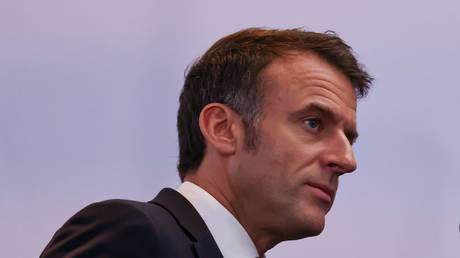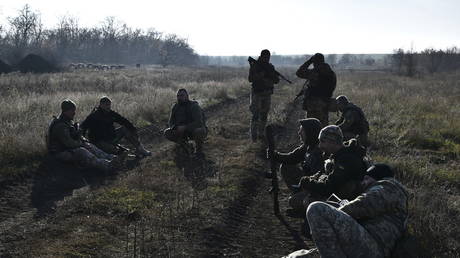ARTICLE AD BOX
null
Taiwan's new President Lai Ching-te will take office on the 20th . Washington and Beijing are paying close attention to the content of his inauguration speech. A senior official of Lai Ching-te's security team announced that the four keynotes of Lai Ching-te's speech will be stability, confidence, responsibility and unity.
Taiwan's new President Lai Ching-te will take office on the 20th . Washington and Beijing are paying close attention to the content of his inauguration speech. A senior official of Lai Ching-te's security team announced that the four keynotes of Lai Ching-te's speech will be stability, confidence, responsibility and unity.
The senior national security official pointed out at an internal briefing at the Presidential Palace in Taiwan that the context of Lai Ching-te’s inauguration speech can be pushed forward to the election night speech. The tone has a certain continuity and consistency, and the policy focus and direction are democracy and peace. Prosperity route.
The summary speech will have four major elements. The first is a steady attitude. Lai will continue the foundation of Tsai Ing-wen’s governance and allow Taiwan to play an indispensable role in the global economy and geopolitical stability. " Under the goal of maintaining the status quo, we will work with all parties to ensure that the stable status quo is not eroded. "
The second is self-confidence. Lai Qingde will demonstrate a high degree of strategic self-confidence and continue to promote various policies. The national government will demonstrate social innovation and resilience and implement Taiwan's spirit of putting Taiwan on the world map. The senior official emphasized that Taiwanese people's self-confidence comes from hard work and kindness and generosity, and is recognized by the international community. Self-confidence has also become an important basis for facing the world.
The third is to assume responsibility. Taiwan is a force for good and a responsible member of the international community. The new government is willing to actively contribute to the world and jointly face and respond to many challenges. " Taiwan will respond calmly and neither be humble nor overbearing. "
The fourth is unity. Faced with China's various means of uniting and dividing society, Taiwan's new government needs to devote more efforts to uniting the Taiwanese people and strengthening the country.
Scholar: Lai Ching-te continues Tsai Ing-wen’s line and does not change due to attributes and past political experience
A Taiwanese strategic scholar who requested anonymity told this station that the main purpose of this internal briefing was to let the outside world know that this senior national security official played an important role in the inaugural speech and the new national security team. At the same time, it also implies that the current president Tsai Ing-wen agrees with and is informed. This is very meaningful, but it cannot be stated explicitly because if it is stated clearly, it will weaken the new president.
Another consideration should be that the Lai Ching-te government is afraid that the outside world will misinterpret the content of the speech. This strategic scholar believes that Lai Ching-te's cross-strait discussion should not mention Taiwan's President Tsai Ing-wen's National Day speech in 2021, which " insists that the Republic of China and the People's Republic of China are not affiliated with each other . " Instead, it returns to an axis, that is, from Tsai Ing-wen ’s inauguration speech in 2016 to Lai Ching-te’s election night speech on January 13. This axis will continue to extend to 520. “ This is the same line, and the line has not changed. No detour . ”
This scholar particularly emphasized, " Dynamic changes are due to external changes. However, Taiwan's tone remains unchanged. It only makes corresponding adjustments in response to external changes. It will not be due to Lai Qingde's attributes, growth background, and past politics." It’s different from Cai because of experience. ”
High-level national security officials responded to the 2027 timetable for attacking Taiwan and ensured that conflicts would not occur under the four pillars of peace.
Lai Ching-te once said in Congress that he is a " pragmatic Taiwan independence worker . " During the presidential election, the opponent camp appealed for " war and peace , " which heightened some people's doubts about Lai Ching-te's election. Therefore, before the election, Lai Ching-te proposed the " four pillars of peace " , including strengthening national defense and asymmetric combat capabilities, improving economic security and supply chains, continuing to build partnerships with democratic countries, and establishing stable and principled leadership in cross-strait relations. To a certain extent, the content of the inaugural speech is based on these four foundations.
In recent years, many U.S. political and military figures have warned of the so-called "2027 timetable for attacking Taiwan . " This senior national security official responded, " Whether it is 2027 , 2037 , or 2047 , we work hard to ensure that no conflict occurs in any year. It won't happen. " The senior national security official emphasized that he would shoulder Taiwan's responsibilities under the four pillars of peace to ensure that the concerns of some people in the international community would not occur.
Interpretation: Lai Qingde is based on Taiwan and faces international cross-strait blurring
" Judging from these four elements, Lai Qingde is based in Taiwan and oriented to the world. While facing the world, it is equivalent to a declaration of the stability of the international community. He maintains a firm belief in the status quo. " Wang Zhisheng, secretary-general of the China Asia-Pacific Elite Exchange Association, accepted this Taiwan visit made the above interpretation.
He said that the content of this briefing did not deliberately elevate cross-strait issues to the level of sharp confrontation or debate on May 20 . Lai Ching-te stressed that he should be a responsible member of the international community and would not increase the risk of instability in the Taiwan Strait in the current situation. Wang Chi-sheng expects that in the future, the Lai Ching-te government’s cross-strait positioning will be relatively vague, with more emphasis on the maintenance of the status quo, the demonstration of values, and the commitment to integrate with the international community. It will not talk about reunification and independence, the relationship between Taiwan and China, and will not deliberately criticize China. Don't stir up sensitive cross-strait nerves.
During his visit last month, U.S. Secretary of State Antony Blinken called on Beijing to exercise restraint as Lai Ching-te took office. China's Taiwan-related unit, the Taiwan Affairs Office of the State Council, recently put forward conditions for the inauguration speech. As long as the " one China " principle is recognized, there will be no obstacles to exchanges with the other side of the Taiwan Strait.
.png)
 6 months ago
3
6 months ago
3









 English (US)
English (US)